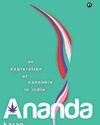
A yellow cloth flutters in the line of mangroves along the shore. Behind the trees, tall buildings shimmer in a haze of pollution; in front of them, thousands of flamingos are gathering, flying in from nearby roosting sites. As the sun ascends, the tidal water ebbs, exposing the mudflats that are the flamingos' feeding grounds.
The army of pink advances.
In a boat, Mrugank Prabhu unpacks his camera, sets up his telescope, and begins his count.
Prabhu is a scientist with the Bombay Natural History Society (BNHS), which is leading an ambitious 10-yearlong study to monitor a unique phenomenon. Every winter, thousands of greater and lesser flamingos fly into Mumbai, forming a sea of pink against a backdrop of skyscrapers, bridges and oil refineries along the 26-kilometerlong Thane Creek. The seasonal gathering is a source of wonder in Mumbai, and also a bit of a mystery.
The flamingos only began visiting Mumbai in significant numbers in the 1990s. As the city grew in the 1970s and '80s, so did the volume of untreated sewage flowing into Thane Creek, nurturing the algae that are the flamingos' main food, and turning the area into a feeding ground for the birds. Their numbers have increased in the past two decades, from at least 10,000 in 2007 to an estimated 1,30,000 this year.
The phenomenon illustrates the complexity of urban coastal ecosystems in India, say experts. Sometimes, "human impact results in conditions that seem terrible for nature at a glance, but are actually a gold mine for some species," says Sunjoy Monga, a veteran local naturalist, who has also led a study on Mumbai wildlife. Now, the flamingos are reshaping the ecological mindset of the city too, showing what wildlife can do for conservation even in the most pressured environments.
Denne historien er fra January 2023-utgaven av Reader's Digest India.
Start din 7-dagers gratis prøveperiode på Magzter GOLD for å få tilgang til tusenvis av utvalgte premiumhistorier og 9000+ magasiner og aviser.
Allerede abonnent ? Logg på
Denne historien er fra January 2023-utgaven av Reader's Digest India.
Start din 7-dagers gratis prøveperiode på Magzter GOLD for å få tilgang til tusenvis av utvalgte premiumhistorier og 9000+ magasiner og aviser.
Allerede abonnent? Logg på

ME & MY SHELF
Siddharth Kapila is a lawyer turned writer whose writing has focussed on issues surrounding Hinduism. His debut book, Tripping Down the Ganga: A Son's Exploration of Faith (Speaking Tiger) traces his seven-year-long journey along India's holiest river and his explorations into the nature of faith among believers and skeptics alike.

EMBEDDED FROM NPR
For all its flaws and shortcomings, some of which have come under the spotlight in recent years, NPR makes some of the best hardcore journalistic podcasts ever.

ANURAG MINUS VERMA PODCAST
Interview podcasts live and die not just on the strengths of the interviewer but also the range of participating guests.

WE'RE NOT KIDDING WITH MEHDI & FRIENDS
Since his exit from MSNBC, star anchor and journalist Mehdi Hasan has gone on to found Zeteo, an all-new media startup focussing on both news and analysis.

Ananda: An Exploration of Cannabis in India by Karan Madhok (Aleph)
Karan Madhok's Ananda is a lively, three-dimensional exploration of India's past and present relationship with cannabis.

I'll Have it Here: Poems by Jeet Thayil, (Fourth Estate)
For over three decades now, Jeet Thayil has been one of India's pre-eminent Englishlanguage poets.

Orbital by Samantha Harvey (Penguin Random House India)
Samantha Harvey became the latest winner of the Booker Prize last month for Orbital, a short, sharp shock of a novel about a group of astronauts aboard the International Space Station for a long-term mission.

She Defied All the Odds
When doctors told the McCoombes that spina bifida would severely limit their daughter's life, they refused to listen. So did the little girl

DO YOU DARE?
Two Danish businesswomen want us to start eating insects. It's good for the environment, but can consumers get over the yuck factor?

Searching for Santa Claus
Santa lives at the North Pole, right? Don't say that to the people of Rovaniemi in northern Finland